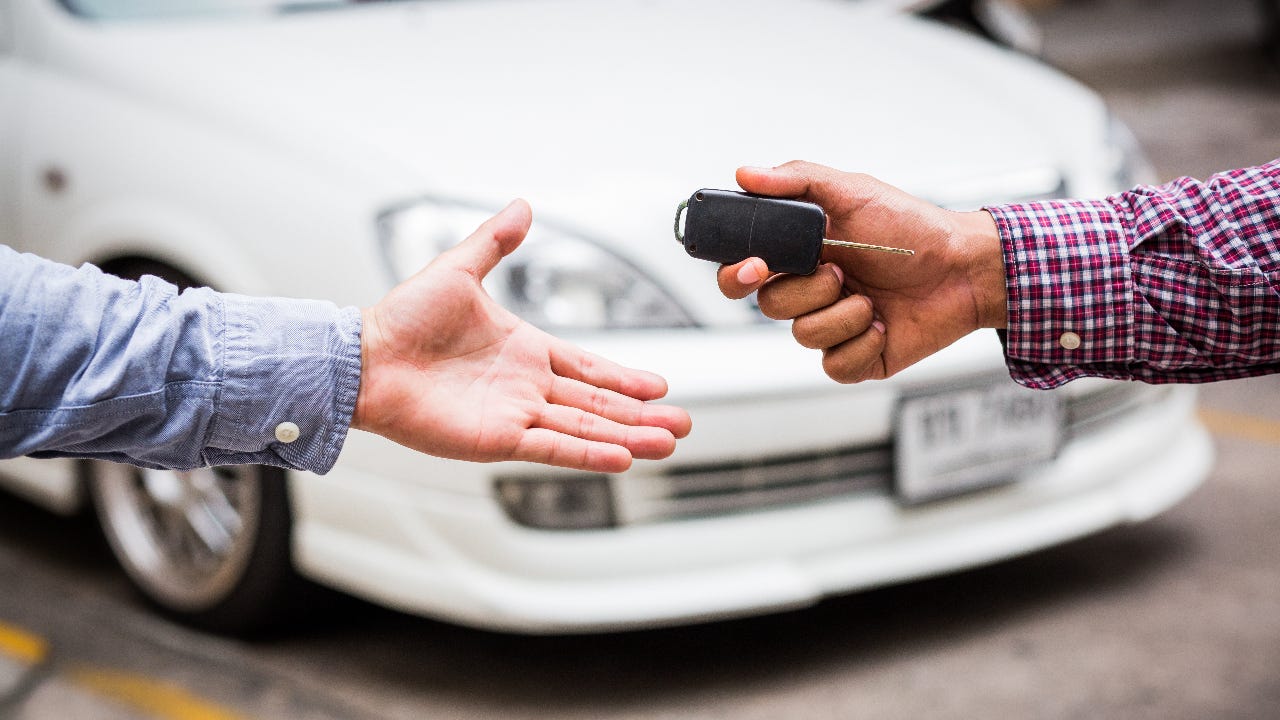Yes, you can sell a car with a lien — here’s how

Key takeaways
- A car lien is placed on your car when you borrow money to purchase a vehicle.
- To release the lien on your vehicle, you must fully pay off the loan against it.
- Contact your lender to determine the car loan payoff and research the vehicle’s value to set a selling price that will allow you to repay the loan debt and release the lien fully.
- If you can’t pay off the car loan before selling, be sure you are transparent about the lien to prospective buyers and work with your lender to determine what steps to take to sell the car and have the lien released.
When you take out an auto loan to purchase a vehicle, the lender puts a lien on your car that remains in place until you pay the loan in full. The lien gives the lender a legal claim to the vehicle if you don’t pay the loan as agreed. Think of it as the lender’s insurance policy that they maintain ownership of the vehicle if you don’t repay them. The lender keeps the title until you’ve paid your loan off.
But what if you want to sell your car before you’ve paid it off? Selling a car with a lien can be difficult, but it’s possible.
How to sell a car with a lien
You can still sell your car, even if you have a car lien, but there are several considerations and implications to know before you do.
1. Contact your lender
While you are repaying your loan, the lender holds a lien on the car. When you pay off the loan, the lender files for a lien release, and you gain full vehicle ownership. As such, you must get a payoff amount and permission from the lender — the lienholder on your vehicle — to sell.
This information will help you determine how much you need to sell the car for to fully repay the debt. This step is also important because the loan payoff amount may differ from the outstanding balance on your loan statement. There may even be early payoff fees that increase the final cost of your loan.
You’ll also want to ask the lienholder about other stipulations regarding selling the vehicle. These might include the proper steps to transfer the car’s title to a new owner if you sell the vehicle to a private owner, not a dealership.
2. Research your car’s value
First, research your car’s value using sources such as Kelley Blue Book or Edmunds to empower you with the knowledge of what you should get for the vehicle. This will help make negotiations much easier.
If your current car value is less than the payoff amount, hold off on a sale if possible. Otherwise, you may work through the hassle of selling a car with a lien and still owe money to your lender after.
Luckily, there are ways to increase your car’s trade-in value and, thus, the equity you have in the vehicle. Consider taking care of any mechanical problems and repairing any cosmetic damage.
Then, get quotes from dealerships on what they are willing to pay for your car and compare that with what private buyers offer. Most trade-ins have liens, so it shouldn’t impact your car’s overall value.
3. Choose a way to sell
A dealership will likely be the simplest option when your car still has a lien. However, a private buyer may offer more for your car — although the process will be more complex.
Sell or trade in at a dealership
One of the easiest and quickest ways to sell or trade in a car with a lien is to go to a dealership. Dealers know how to work around liens and will likely handle most of the paperwork.
This option usually nets you less money overall — dealers don’t spend as much as a private buyer — but the convenience could be worth it. Your lender may oppose a private sale but accept selling to a dealership. Note that you might have a hard time selling if your car loan is upside-down, meaning you owe more on the vehicle than the car is currently worth.
Pay your loan before selling to a private buyer
If selling your car with a lien is too complex, consider paying off your car first if you have the funds to do so. The lender will send you your car title after payoff, and you can follow your state’s process for title transfers to the new owner. Your buyer can make the purchase free and clear, which is less work for you both.
Have a private buyer pay off the loan
Selling your car privately may take more effort and time, but it can allow you to make more money. A private buyer may be willing to pay you more money to avoid going through a dealership.
Contacting your lienholder in advance is crucial, as they may disallow private sales or have a specific process you’ll need to follow. If you can sell your vehicle privately, your lender will instruct you on how to fully pay off the vehicle, whether through you or your buyer.
When you list your car for sale, mention that it currently has a car lien on it. Consider using an escrow account when working with a private buyer. These third-party services let both parties transfer money securely for a fee.
Bottom line
While it’s simpler to sell a vehicle without a lien, you can still sell your car if it has a lien against it. The key to a successful sale of a vehicle under lien is to research reasonable selling prices, and most importantly, speak with your lender, the lienholder, about your intentions and what you must do to achieve that.
Frequently asked questions
Why we ask for feedback Your feedback helps us improve our content and services. It takes less than a minute to complete.
Your responses are anonymous and will only be used for improving our website.
You may also like

Buying a home after foreclosure






